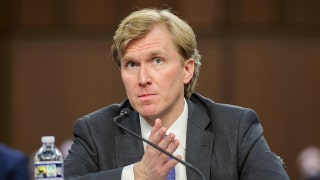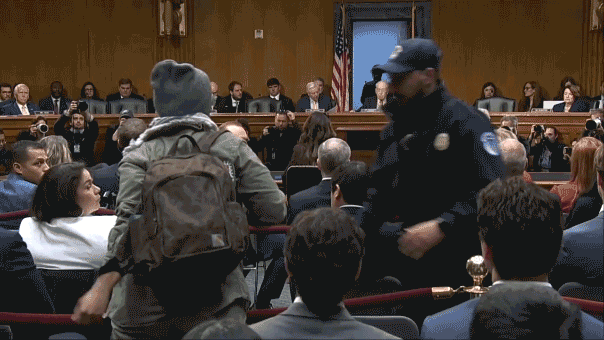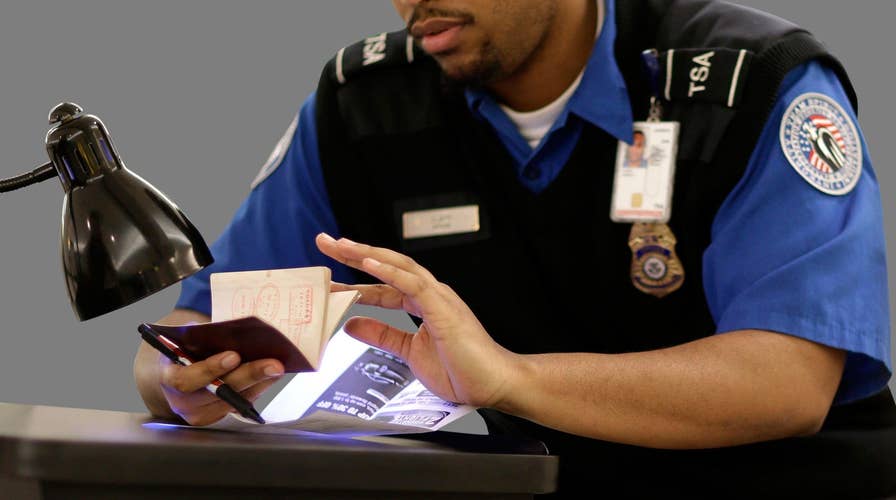TSA may stop accepting driver's licenses from some states
Travel industry analyst provides insight on 'Shepard Smith Reporting'
Millions of air travelers across the U.S. are potentially at risk of finding themselves grounded in the new year thanks to a post-9/11 law that took a decade to finally come into effect.
The REAL ID Act, originally passed in 2005, was meant to tighten standards for government-issued IDs like driver's licenses -- to boot, it banned federal agencies from accepting any IDs that don't meet the bar.
That means the TSA technically shouldn't accept driver's licenses from certain states, once the law is in full effect. While Washington let the rules slide for years, the Department of Homeland Security could start to enforce them in 2016 and is pushing states to comply.
And that has the potential to cause confusion, not to mention headaches at the airport -- as many states are still not in full compliance, and different states are operating on different timetables.
Here's what to expect in the months ahead:
DHS is enforcing the legislation in stages. Currently, it is only requiring the enhanced IDs for access to federal facilities. Some states have extensions, but those are set to expire next year -- in January, June and October, depending on the state.
The bigger controversy is over what comes next. As early as 2016, DHS is expected to start enforcing the ID requirements for air travel. That means anyone from states flouting the ID rules would not be able to use their driver’s licenses to board a plane, and would have to use a passport or other accepted form of ID instead.
Worried you might be affected? Well, it depends where you live.
So far, more than 20 states are in the clear because their IDs pass the test. At least 20 other states with extensions have until June or October to get in line or apply for another extension.
But a handful of other states are running up against a much-tighter deadline: California, Illinois, Missouri, New Mexico and Washington have extensions only through Jan. 10.
Of them, Illinois, Missouri and Washington state have been told Jan. 10 is the final deadline. The others are still waiting to see if they can get a grace period beyond that date. Minnesota, meanwhile, is the only non-compliant state whose extension has expired.
Eventually, all states will have to either upgrade their driver's licenses if they want residents to be able to use them to fly.
The legislation has faced opposition from both Democrats and Republicans due to privacy and cost concerns, and fears that it represents the first step toward a national ID system.
“We’re already on our way to a surveillance society and we're going to get there even faster thanks to REAL ID,” Jim Harper, Senior Fellow at the CATO Institute, told FoxNews.com.
While the immediate impact could be minimal as the law currently only applies to certain federal facilities, a DHS spokeswoman said the agency is in the process of rolling out the plans for airports.
“DHS is in the process of scheduling plans for REAL ID enforcement at airports and will ensure that the traveling public has ample notice, at least 120 days, before any changes are made that might affect their travel,” spokeswoman Amanda DeGroff told FoxNews.com, while putting the onus on the states to act.
“The REAL ID Act places the responsibility for action on the state to provide state-issued identification that meets the Act’s security standards,” DeGroff said.
While residents in non-compliant states could soon find themselves in a jam at the airport, supporters of the changes say the fault lies with states dragging their feet.
“Should citizens be frustrated by this? Yes, I think they should be, especially as one of the parties unaffected will be legal immigrants, as they have green cards which can be used to board a domestic flight,” Brian Zimmer, president of Keeping IDentities Safe -- a group that has been supportive of REAL ID, told FoxNews.com
Zimmer downplayed the immediate impact on travelers in 2016. He notes that even in some non-compliant states, such as New York, enhanced licenses are already available that will be acceptable by TSA standards. He also believes the timeline for the rollout will be lengthy.
“Such a major shift will occur first at small airports, as was the case when the earlier ID checks began in early 2008,” Zimmer said. “Technically, the 'final' airport at which REAL ID enforcement is established could be as late as 2020 -- four years from now, when the deadline of total public enrollment for REAL ID is scheduled to occur, unless a further extension occurs.”
Opponents of the law argue that the looming airport implementation is a tactic for the federal government to bully the states into complying.
“They’re going to make a great show of force in order to goad states into complying,” Harper said. “If the TSA was to turn people away at the airport, people visiting grandmothers at Easter, there’d be a great show of anger, all aimed at the TSA.”
“It’s all part of a bluff to force legislators to comply with the federal mandate,” he said.
The Associated Press contributed to this report.













































